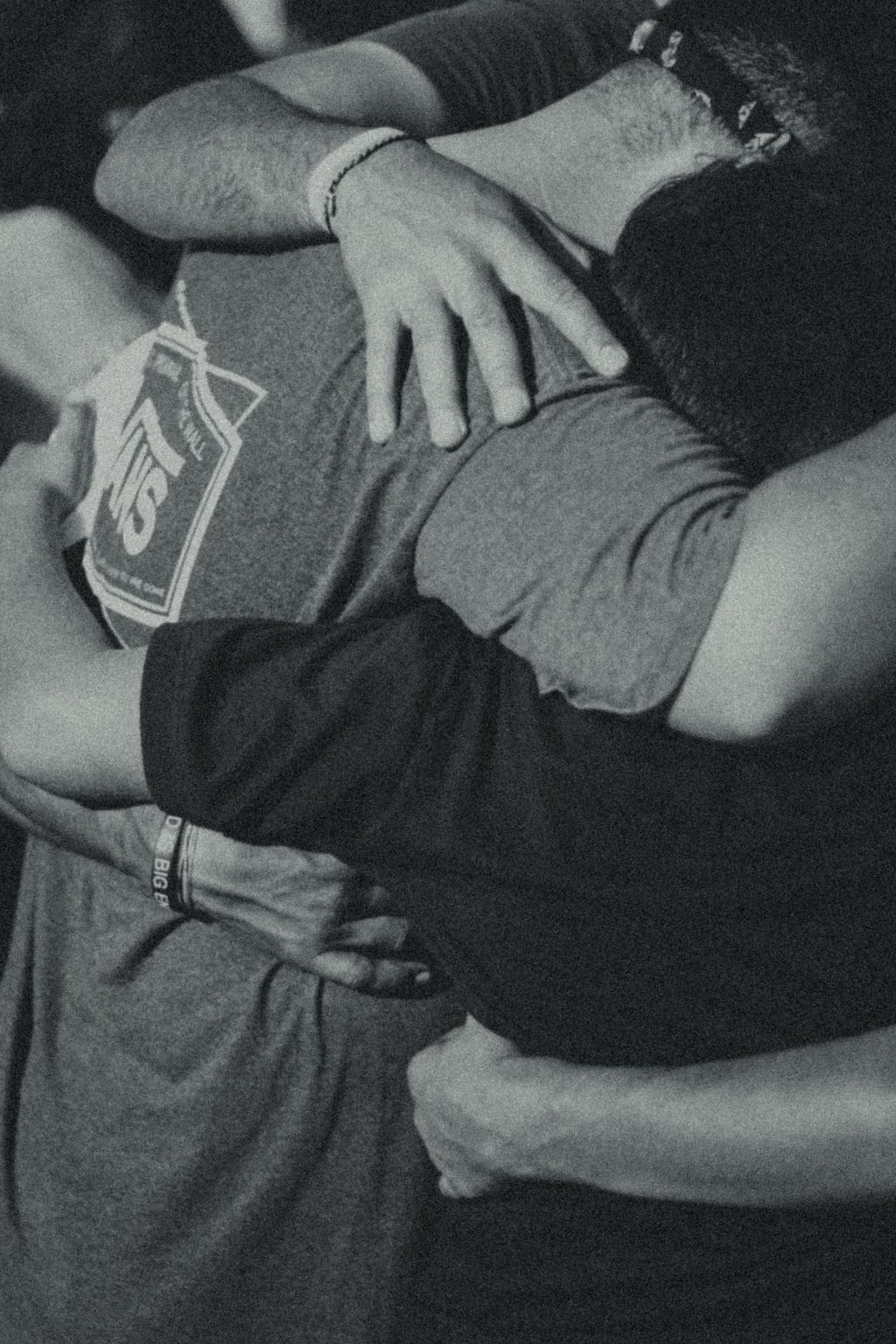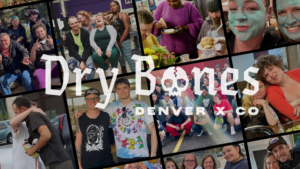co-written by Annie & Robbie
The story of the valley of dry bones in Ezekiel 37 invites the question, “Can these bones live?” We hear these words today in Denver.
On many days, the dried up bones feel like Denver’s lack of safe and sustainable housing opportunities. (For this reason, we are currently exploring options for DB sponsored housing.) What is the solution? Can “these bones” live?
The struggle of finding a place to live, heal, and sleep creates dramatic scenarios. For Dry Bones, these stories almost always involve that big question and they always require compassion. Allow me to share six scenes of an actual day-in-the-life:
Scene 1:
It’s my (Annie) first full week at Dry Bones. The day started with a successful, exciting housing story. In the middle of working with a friend to get her paperwork finalized for her new and stable living situation, I got a text. The text said, “Jackson is here waiting for you???” I finished up with my friend and then headed back to the office to see what was going on. On my way back I felt really great–good job, me–helping people get connected to resources.
Scene 2:
When I (Annie) walked into the office, Jackson was on the phone. He was doing a pre-interview with a housing program. The conversation was a typical checklist for compatibility: “Age? Drug of Choice? Do you Smoke? Criminal History? Health Concerns?” At some point it became obvious to the interviewer, and soon to Jackson, that the program wasn’t going to be a good fit. The best they could offer were referrals out. Jackson was left to infer that he was unwanted; that someone who could have met his need didn’t want to. He hung up the phone.
Scene 3:
I (Robbie) got a text that said, “Hey, we’re having a Jackson freak out here.” When I walked in to the office, Jackson was very upset and surrounded by a few of the Dry Bones staff. At that moment I knew that he had come here today expecting to be housed tonight. I also knew that there was no way that was going to happen. Having a long-standing relationship with Jackson, we had an honest, private conversation. It quickly became clear that psychological stability needed to be the number one priority for today. Years of life’s traumas, present now in this one moment, were threatening to kill Jackson. Sitting on the porch, emotions cycled from sadness from past mistakes to fear from present and past trauma. The cycle continued on to anger at the lack of belief on the part of all not experiencing the situation and then on to laughter and joking as a way to survive the difficulty before cycling back into sadness. The only thing I could offer was compassion, but compassion didn’t have a clear directive. Might as well eat.
Scene 4:
While Robbie was talking to Jackson, I (Annie) was looking for any and all resources we could connect him with today. Mostly, I was not finding anything. The only real resource we had at the moment was food. He came into the office with a beautiful plate of beans, rice, and a burrito and sat down next to me. As we discussed possible treatment facilities, it became clear that he was without insurance or medicaid of any kind. We filled out the forms for Medicaid, but still no immediate solutions. Medicaid processing takes 45 days. Nothing we were doing had any bearing on where he might find shelter and safety for tonight. The reality of this kept snowballing throughout the morning and into the afternoon. Full-bellied and potentially insured, Jackson was still crumbling under the weight of the moment. The anger, sadness, and and fear got bigger and bigger until it was clear that the only viable option to ensure his safety was medical and psychological help. Time to go to the hospital.
Scene 5:
As we drove to the ER, Jackson seemed calm. He was resting in the comfort of having a plan and a bed, a place for tonight. We were received kindly and gently by the nurses and staff. His health was quickly assessed and plans were put in place. Jackson was calm enough that the nurses said he could sit with us in the waiting room instead of alone in a small room. Then the wait began. The ER started to fill up as we sat there. A couple hours passed with good conversation, and then the cycle of fear, anger, and sadness began again, and while all those emotions were present, anger once again rose to the top. He bolted through the ER and hospital doors, and we ran after him. As we attempted to get him to go back inside, he kept yelling at us, telling us that there wasn’t any hope for him, that we didn’t believe his stories, that nothing was going to get better or easier, he might as well go back to shooting up and getting high. He pulled his clothes out of his backpack and put them on over the hospital gown.
Scene 6:
We knew we couldn’t let Jackson leave in this state, and we had to make the choice to go against his will and get hospital security to bring him back inside. While Robbie went to find security, Jackson ran away again, around the building, and into the arms of two security guards right there. They treated him with kindness and honesty as they communicated their concern and their belief in the difficulty of his situation. In some ways, they became the allies we couldn’t be at that moment. As the nurses and staff came out and surrounded him, we stepped back, feeling estranged, and also comforted.
—
Compassion isn’t directive. It doesn’t tell people what to do. It comes from an equality instead of a power relationship. It enters into the reality of a relationship.
Some would say that we had the “clear heads” in the situation. But, do we really have a “clear understanding” if we haven’t been through what Jackson has been through? There wasn’t clarity. He didn’t have it. We didn’t have it. We didn’t have directives, but we had a direction: towards. We could only move towards and alongside one another as this tragedy was unfolding. It became a shared tragedy. In some way, we suffered together.
There is something instinctual about compassion. Many times our compassion can come with directives. Solve the issues. Feed the person. Clothe the person. But, when the solution isn’t clear and isn’t immediate, compassion is more like entering into uncertainty rather than certainty. All day we encountered unanswerable questions, but the one question we had to keep answering was, “Are you going to stay with me?” Maybe that is what compassion asks us, “Will you stay with me?”
Compassion can be defined, “To love and suffer together and alongside another.” It is a bonding activity. The scenes of a compassion story don’t usually end with clear resolution. And although we live in a world that loves the measurable, compassion doesn’t fit nicely into those parameters. You might say that compassion is the essence of faith. It’s a trust that there is an importance to this moment–even if I don’t know how or why. Compassion creates relationship. In these relationships, which often include suffering and difficulty, we discover more about ourselves, others, and God. In discovery and in faith, we wait expectantly and with great hope that there is something more.
Can these bones live?
You alone know, oh Lord.
Compassion keeps us in the question.





